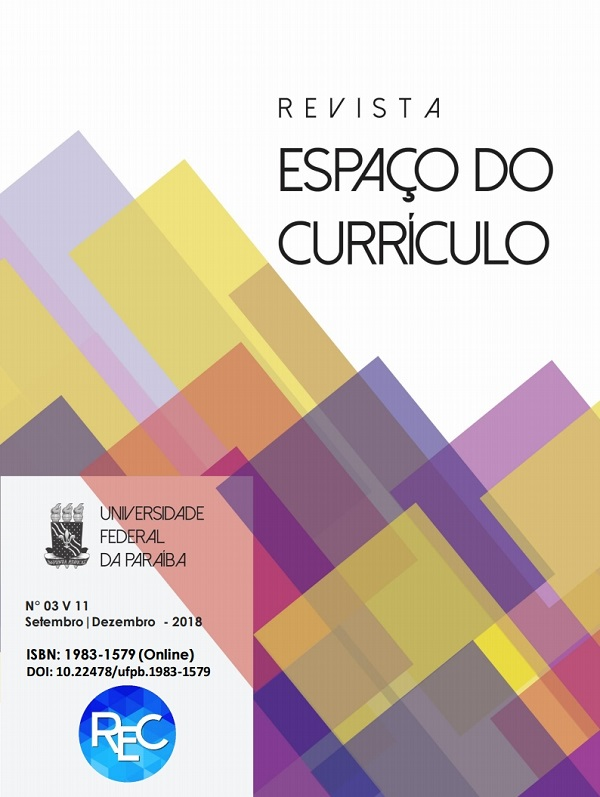"ECO-EMPREENDE CONVENT"
a community project of Social and Environmental Education for empowerment, in the society of Bem Viver do Ecuador
DOI:
https://doi.org/10.22478/ufpb.1983-1579.2018v3n11.39503Keywords:
Socio-environmental Education, Agroecology, Community Empowerment, Bem Viver, Convento Eco-EmpreendeAbstract
In the face of the current socio-environmental and civilizing crisis, it is necessary to take actions that enable the empowerment of people and their communities, in order to promote changes in their lifestyles and advance towards the society of Bom vivir. This research work aims to publicize the project “Convento Eco-Empreende”. It is an eco-pedagogical experience that constitutes a community alternative through the processes of socio-environmental education, the construction of an agroecological garden and the creation of solidarity entrepreneurship processes. As a result, the training processes of a group of people from the rural community of the Convent on the Ecuadorian coast are shown. In short, it is concluded that socio-environmental education requires a dialogue of knowledge that integrates scientific knowledge with the ancestral wisdom of communities.
Downloads
Metrics
References
Leff, E. (2006). Complejidad, racionalidad ambiental y diálogo de saberes. Presentado en el I Congreso internacional interdisciplinar de participación, animación e intervención socioeducativa en Barcelona. Centro nacional de educación ambiental. Recuperado de: http://www.mapama.gob.es/es/ceneam/articulos-de-opinion/2006_01eleff_tcm7-53048.pdf
Morín, E., y Kern, A. B. (2006). La agonía planetaria. In Tierra-Patria (1a ed. 3a, pp. 71–114). Buenos Aires: Ediciones Nueva Visión.
Najmanovich, D. (2009). Epistemología y Nuevos Paradigmas en Educación. Educar y aprender en la sociedad-red.
Novo, M. (2009). El desarrollo sostenible. Su dimensión ambiental y educativa. Madrid: Ed. Universitas.
Saul, J. (1995). The Unconscious Civilization. Concord, Ontario: Anansi Press.
Selener, Daniel (1996). Manual de sistematización participativa. Instituto Internacional de Re- construcción Rural (IIRR).
Shiva, V. (1993). Monocultures of the Mind. Perspectives on Biodiversity and Biotechnology. New York: Zed Books.
Soler, P.; Planas, A.; Ribot-Horas, A. y Ciraso-Calí, A. (2014). Empoderamiento en la comunidad. El diseño de un sistema abierto de indicadores a partir de procesos de evaluación participativa. 49–77. http://doi.org/10.7179/PSRI
UNESCO (1978). Intergovernmental Conference on Environmental Education. Tbilisi (USSR). Final Report. Paris: UNESCO.
UNITED NATIONS (1987). Report of the World Commission on Environment and Development. “Our Common Future”. General Assembly.
Downloads
Published
How to Cite
Issue
Section
License
By submitting an article to Curriculum Space Journal (CSJ) and having it approved, the authors agree to assign, without remuneration, the following rights to Curriculum Space Journal: first publication rights and permission for CSJ to redistribute this article. article and its metadata to the indexing and reference services that its editors deem appropriate.
















